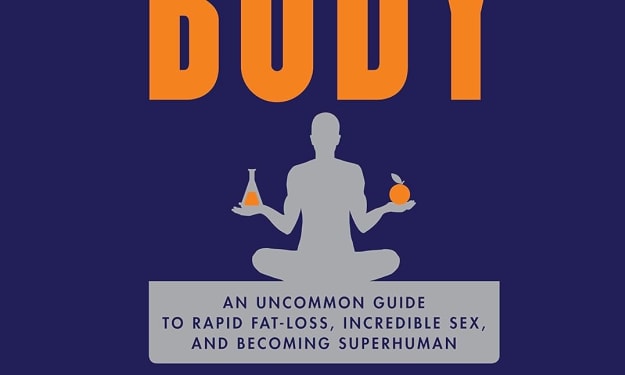Benefits of Reading
Reading to increse your life qualification

Why should you read books? Before, I never considered making a video discussing this topic because my love for reading books has always been intrinsic. Since childhood, reading has been a natural habit, requiring no external motivation or justification. However, as time passes, perspectives evolve, and now, I feel compelled to earnestly examine the profound benefits that reading offers, both to myself and to everyone in general. Today, we delve into this subject on the Thanh Reading channel. I'm simply a book enthusiast eager to share knowledge with everyone.
My channel focuses on two main themes: book reviews and discussions on reading itself—how to approach it, lists of books I'm currently exploring, and more. Let's dive into the main content of today's discussion.
In my view, reading books yields four primary benefits. Firstly, it connects us with people across time and space, allowing us to tap into the wisdom of generations and diverse cultures. Books house the most elite thoughts of humanity across millennia. This benefit can be argued in two main points. Firstly, reading expands our minds. For instance, reading a psychology book on money reshaped my perspective on saving. Author Morgan Housel posits that true savings come from modesty, not income increases—spending less stems from wanting less, which, in turn, depends greatly on mindset. Before this insight, I once desired a flashy motorcycle despite financial constraints, fearing societal judgment. The psychology of money redirected my priorities towards more meaningful savings, enabling me to allocate resources wisely.
Moreover, books like "The Art of Personal PR" fortified my resilience during criticism while building my YouTube channel. Author Austin Kleon advises that success entails embracing criticism alongside praise. Constructive feedback fuels growth, while baseless criticism is best ignored—advice I apply to this day. Such insights underline the transformative impact books can have on personal and professional development.
Secondly, reading books helps integrate fragmented knowledge into cohesive understanding. Imagine each book as a puzzle piece; the more books read, the clearer the overall picture of knowledge becomes. For instance, "The 7 Habits of Highly Effective People" by Stephen Covey advocates for Win-Win thinking—believing in enough for everyone's success. This mindset contrasts with scarcity thinking, where one person's gain is viewed as another's loss. Integrating this principle into my life has fostered more cooperative relationships and a deeper sense of abundance.
This integrated approach to knowledge extends beyond self-help genres. "Think and Grow Rich" by Napoleon Hill introduces the concept of visualization and belief as keys to success. Initially skeptical, I later discovered parallels in "The Secret" by Rhonda Byrne, which explains the Law of Attraction—our thoughts attract corresponding energies, shaping our reality. Connecting these concepts illuminated the power of mindset and intentionality in achieving personal goals.
Further, Paulo Coelho's "The Alchemist" sheds light on the dangers of singular goal fixation, akin to the crystal merchant's stagnation post-pilgrimage. This resonated deeply after reading "Atomic Habits" by James Clear, which underscores the need for continuous growth beyond singular achievements.
Moving beyond personal enrichment, the second benefit of reading books lies in its role as a primary source of knowledge, especially in the absence of internet access. While digital platforms offer alternative sources, books undergo rigorous editing and scrutiny—ensuring reliable, well-structured content. Authors invest years researching and refining their work. For example, "Seven Principles for Making Marriage Work" by John Gottman and Nan Silver draws from a 16-year study on marital success, highlighting the thoroughness of book research.
Furthermore, books facilitate undistracted learning and reflection—unlike videos susceptible to social media distractions. This focused engagement deepens understanding and critical thinking skills, enhancing overall comprehension.
Lastly, reading books enhances practical skills crucial for academic and professional success. Reading fosters concentration and vocabulary expansion—essential for comprehending lengthy documents or mastering complex subjects.
In conclusion, the benefits of reading books extend beyond personal enrichment to encompass a profound connection with humanity's collective wisdom, rigorous knowledge acquisition, focused learning, and skill development. As an avid reader and content creator, I advocate for embracing books as transformative tools for growth and enlightenment.
I hope this exploration of the benefits of reading has been enlightening. If you resonate with these ideas or have further insights to share, please engage with me in the comments below. For those interested in delving deeper into the books discussed, links to their reviews are provided. Thank you for joining me on this journey of discovery and learning. Until next time, keep reading, keep growing, and embrace the enriching power of books. Goodbye for now, and see you soon on Thanh Reading!
About the Creator
Enjoyed the story? Support the Creator.
Subscribe for free to receive all their stories in your feed. You could also pledge your support or give them a one-off tip, letting them know you appreciate their work.





Comments
There are no comments for this story
Be the first to respond and start the conversation.